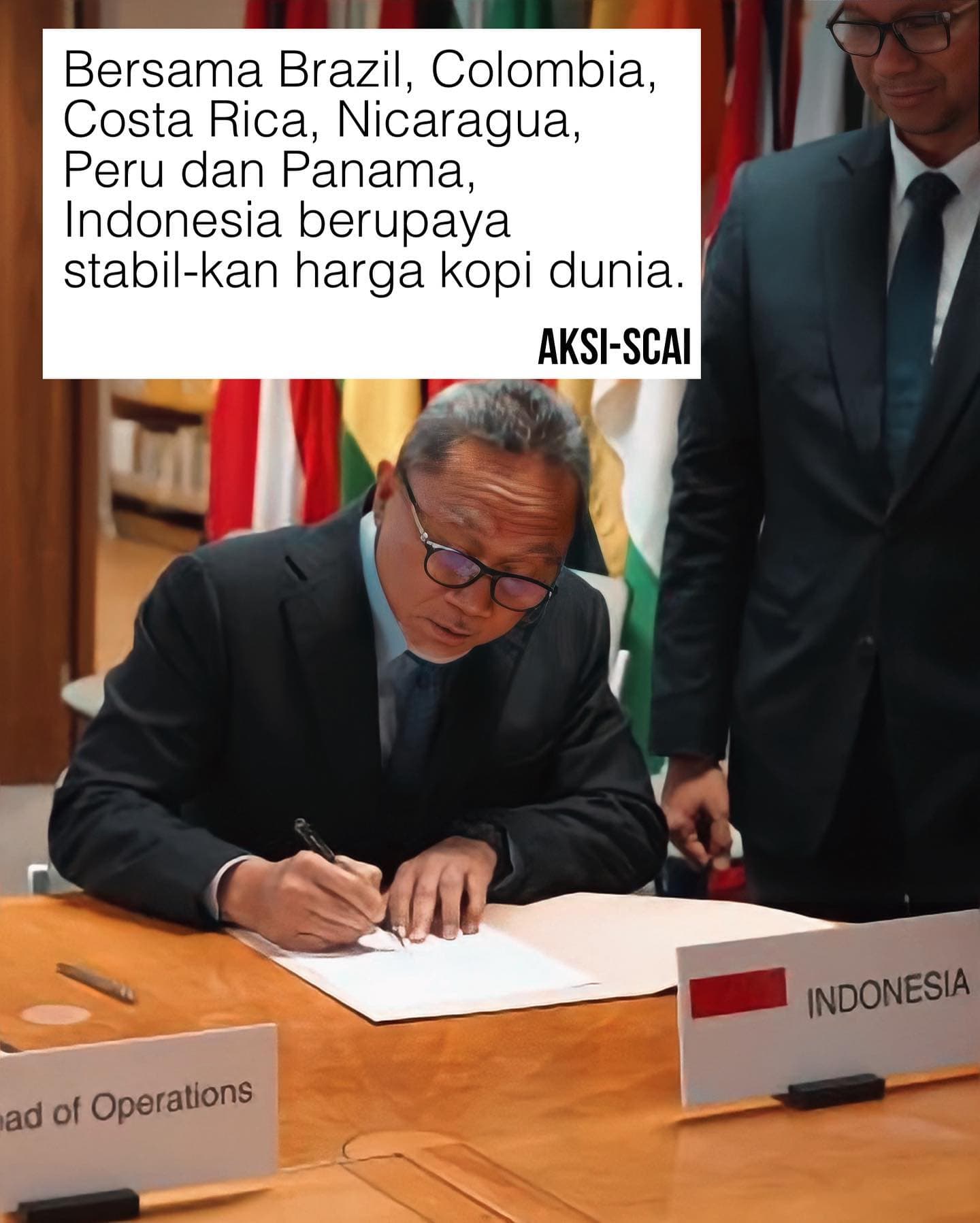The International Coffee Organization (ICO) announced on its official Instagram account that Zulkifli Hasan, Indonesia’s Minister of Trade, signed the International Coffee Agreement (ICA) 2022 at the ICO headquarters in London last week.
This agreement, intensively discussed since 2019 and adopted on June 9, 2022, marks a significant milestone for Indonesia as the first Asian coffee-producing country to sign the ICA 2022.
The signing of the ICA 2022 by Indonesia aims to enhance national coffee exports and maintain global coffee price stability, ultimately improving the welfare of Indonesian coffee farmers.
The ICA is a multilateral agreement between governments representing coffee-producing and coffee-consuming countries.
The 2022 agreement is the seventh of its kind since 1962, continuing the legacy of stabilizing global coffee prices through export quotas.
With this signing, Indonesia becomes the tenth member country to sign the ICA 2022, joining nine other ICO members, including eight coffee-exporting countries: Brazil, Costa Rica, Nicaragua, Peru, Togo, Venezuela, Panama, and Colombia, as well as one coffee-importing country, Japan. The remaining ICO members are scheduled to sign the agreement by the end of April 2023.
The ICO highlighted Indonesia’s proactive role in the global coffee sector and its commitment to implementing the ICA 2022.
This step reflects Indonesia’s dedication to fostering a sustainable and economically prosperous coffee industry, benefiting millions of coffee farmers across the country.
As the world’s fourth-largest coffee producer, Indonesia’s involvement in the ICA 2022 is expected to have a significant impact on the global coffee market.
The agreement aims to ensure fair and stable coffee prices, supporting the livelihoods of coffee producers and contributing to the overall stability of the coffee industry.
The ICO’s announcement of Indonesia’s signing of the ICA 2022 underscores the country’s strategic importance in the global coffee market and its ongoing efforts to promote sustainability and economic growth in the sector.


